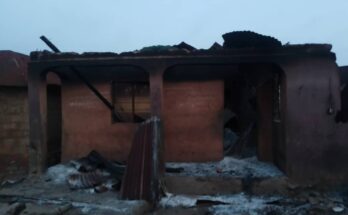Recently a West African country, Senegal, secured a €2.5 billion funding from G-7 countries for its transition to cleaner energy programme. HELEN OJI reports.
Senegal, a West African country with a $31 billion GDP economy, recently made a good catch at the summit for New Global Financial Pact in Paris, France, to kick-start its transition to cleaner energy programme. The country secured €2.5 billion ($2.7 billion) of funding from the Group of seven rich countries to reduce its dependence on fossil fuels, into renewable energy. The deal is under the Energy Transition Partnerships (JETPs) funding which seeks to increase renewable energy for the African country’s electricity mix over seven years. The deal with Senegal is underwritten by France, Germany, Britain, Canada and the European Union.
Renewable energy
According to Senegals’ President Macky Sall, the country is committed to increase the share of electricity generated by renewable energy to 40% by 2030.
“Currently, just over 30% of Senegal’s power comes from renewable sources, it was based on unfavorable loans.
Senegal relies heavily on burning oil and gas to produce most of its electricity, rather than coal. This is in contrast to South Africa, with almost all of its power output coming from coal, regarded as the dirtiest fossil fuel.
Senegal is the first non-coal-dependent nation to benefit from the climate financing scheme. The JETP will offer Senegal some respite, which has separately requested $1.8 billion of funding support from the IMF.
The West African country has already secured a staff level agreement for a credit facility of $1.5 billion, and an additional $300 million from a new trust set up to help vulnerable countries build resilient to external shocks such as climate change. It still requires final funding approval from IMF Board.
Oil field
An analyst at E3G, a climate think tank, Ronan Palmer, said the renewable target that Senegal has proposed is a good idea. “We don’t want them to be locked into long term dependence on gas”.
However, Palmer warned that the finance providers for Senegal’s JETP have to be careful and avoid the mistakes made in South Africa. This should not be a mechanism for more debt.
Additional, other climate financing observers have raised concerns that the JETP deal is too reliant on loans rather than grants
LNG
The country is preparing to produce gas using part of the output to boost its electricity supply, while also developing a liquefied natural gas (LNG) industry for export from its Greater Tortue Ahmeyim (GTA) oil field which begins production in the last quarter of this year (Q4 2023).
The IMF projects that the country is set to expand the most in Sub-Saharan African this 2023 after the first gas is produced from the BP-backed GTA field. The GTA project overlaps the border between Senegal and Mauritania. Expected to come on stream by Q4 2023, a second phase may just start early as early as 2024.
Resilient development
However, this will require about $5 billion
in financing that appears extremely difficult for the country to secure given the increasing antipathy toward fossil fuel projects worldwide.
Sall stressed that “gas as transition fuel needs to be able to coexist with renewable energy”.
He informed that renewables already account for 31% of Senegal’s energy mix, making it the first country that doesn’t rely on coal for electricity to get funding under the JETP programme.
In a statement by the international partners at the GTA project, explained that Senegal intends to use its gas as transitional energy, while gradually phasing pout heavy fuel oil overtime.
“The country is determined to strengthen the development of renewable energies in its energy mix as part of its integrated low cost electricity plan, with a view to reducing emissions, while enabling fair and resilient development,”
Sall noted that”Africa’s most urgent need is infrastructure financing.”
He added that the continent lacks everything lacks everything from road and and rail networks to electricity. So these are our needs, beyond just the climate,” he said.




